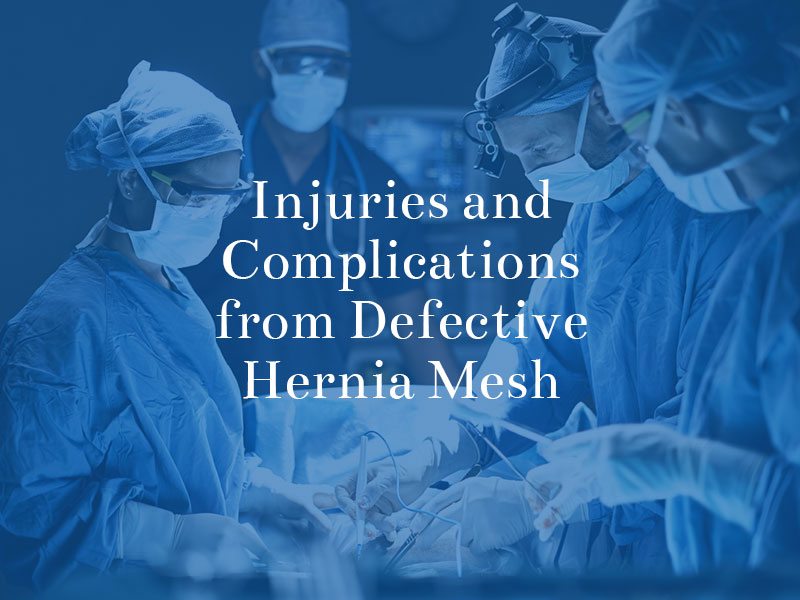A Voice for the Voiceless
The Dunken Law Firm is committed to helping each client find their voice and recover what has been lost.
START MY FREE CONSULTATIONAugust 6, 2019 | Mass Torts
Hernias – which are described by the U.S. Food and Drug Administration (FDA) as an injury that occurs when an internal organ, intestine or fatty tissue is forced through a tear, hole, weak spot, or gap in the surrounding muscle or connective tissue – are commonly treated by surgical mesh. These operations are among the most common surgical procedures in the United States each year. In fact, more than 1 million Americans undergo surgical repair for hernias each year.
Surgical mesh is a medical device designed to provide additional support to the weakened and/or damaged tissue. These devices are predominantly constructed from animal tissue and synthetic materials. These devices come in a wide variety of makes and models yet are generally classified as absorbable (non-permanent) or non-absorbable (permanent) hernia mesh implants. Generally speaking, hernia mesh complications arise when the mesh is defective or improperly installed.

Surgical mesh has long been associated with medical complications, adverse reactions, and injuries, including (as noted by the FDA):
Of these issues, the most common complications are pain, infection, hernia recurrence, adhesion and bowel obstruction. Hernia mesh has been identified as the primary source of bowel perforation and obstruction complications in all FDA medical adverse event reports. It is also important to note that the vast majority of hernia mesh complications are associated with hernia mesh implants that have already been recalled or are no longer on the market.
Unfortunately, the signs and symptoms of defective hernia mesh are very similar to the signs and symptoms of a host of other illnesses and medical conditions. The most common signs and symptoms of defective hernia mesh are:
The commonality of these symptoms (with other illnesses) makes hernia mesh defects challenging to identify and explains the long periods of time it often takes patients to identify their defective hernia mesh. Problematically, complications with hernia mesh left untreated may become increasingly more severe over time, even escalating to terminal illnesses (in the most extreme instances).
If you or a loved one are suffering any of the aforementioned symptoms of defective hernia mesh, or believe you’ve suffered a hernia mesh-related injury, it is important to contact your physician and notify them of your hernia procedure and complications.
If your physician determines your symptoms to be the result of defective hernia mesh, diagnoses you with a hernia mesh related injury, or you learn that your hernia mesh has been recalled by the FDA or manufacturer, you should contact a qualified hernia mesh attorney as soon as possible to discuss your options. The dedicated team of attorneys at the Dunken Law Firm has extensive experience litigating hernia mesh related cases. Contact us at (713) 554-6780 for your FREE consultation and case evaluation, today.